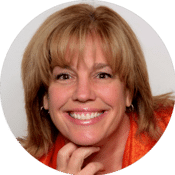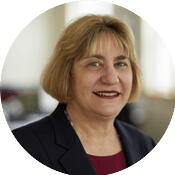
➤Engage pro-social emotions to forge stronger and more positive bonds with your co-workers, subordinates, and boss—and build more positivity within yourself, rather than reacting in harsh and hurtful ways
➤Practice using power positively—using it responsibly when you have it, and expanding your opportunities for impact when it’s limited
➤Stretch and grow professionally by tapping into why you lead—understanding the deeper meaning that leadership holds for you as a source of positive energy and engagement using the tools of positive psychology.
This course is for leaders who want to deliberately and consciously craft a culture of both personal responsibility and shared accountability, owning the fact that we all have a role to play together and separately within the organizational ecosystem.
Drawing from biology, neuroscience, and positive psychology, this course combines the wisdom of science with direct application of the research—offering you a practical guide to leadership that is fluid and responsive.
We all have a leader within, and there is a natural, organic way of expressing it without exhausting ourselves in the process. That’s what you’ll explore in this course.
1. SELF-AWARE
I know myself and how I want to live.

2. OPEN
I welcome and invite deep connection.
3. DIRECTIVE
I stand in my own power.
4. ATTENTIVE
I am radically receptive to life.
Lesson 1: Defining Leadership
In this lesson, you’ll explore your beliefs about who is and isn’t a leader. You’ll uncover limiting assumptions and constructs to find the freedom that comes from a broader, more inclusive way of seeing leadership. You’ll be introduced to the concept of mindful self-care and positive embodiment, getting a felt sense of owning leadership while integrating your needs with the demands of the role.
Lesson 2: Self-Leadership
Self-regulation is the discipline of saying yes and the restraint of saying no. In this lesson, you’ll learn the science and practices to optimally manage your personal biological system. You’ll build the skills that lessen emotional hijacking and reactive responding, helping you to skillfully stay in the zone of effectiveness and bring forth more of your innate goodness. The goal of this lesson is to exercise self-awareness, allowing an ongoing discovery of who you are and how you want to live.
Lesson 3: Shared Leadership
In biology, the term “edge effect” describes the overlap where two ecosystems come together. In this lesson, you’ll understand the edge effect at work, as you come together every day with the ecosystem of others, organizational culture, and society. You’ll explore the concept of interdependent leadership versus heroic leadership. The goal of this lesson is to lean into relationships—fostering the inclination to deeply engage with others in a constructive way, building an inclusive approach to diverse ideas.
Lesson 4: Structured Leadership
This lesson is about power—how to use it responsibly when you have it, and expand your opportunities for impact when it’s limited. You’ll explore the difference between “BeAct” and react. The goal of this lesson is to stand in your own power, directing others in service to a shared vision.
Lesson 5: Life Leadership
As the saying goes, the best-laid plans often go awry. No matter how much you own your own leadership capacity, you don’t control everything. Life does what it does. In this lesson, you’ll practice receiving what life is giving, learning to discern when it’s time to cultivate willingness instead of pushing forward with will. The goal of this lesson is to be attentive to what’s happening now, staying receptive to what is instead what you think it should be.
Lesson 6: The Field of Presence
The poet Rumi wrote, “Out beyond ideas of wrongdoing and rightdoing, there is a field. I’ll meet you there.” In this lesson, you’ll explore the four-quadrant leadership model, including the concept of a “field of presence” that invites a fluid, responsive way to meet the demands of the day. The topic of wholeness is introduced, along with what it means to embody wholeness as a leader—and to see others as whole.
Lesson 7: BeAction Planning
In this lesson, you’ll consolidate learning, creating a leadership statement that sums up how you want to be, why that is important to you, and the actions that support that intention. You will be asked to share this leadership statement with three people, face to face, using the opportunity to vocalize your intentions, get support from those you trust, and build inner commitment.
For those who have taken the Certificate in Wholebeing Positive Psychology, this course dives deeper into the content you were introduced to in Module 8.

Megan McDonough

Amy Avergun
Tuition for this course is $895.USD
Email us for info on group discounts for organizations.
Contact us for more information at [email protected].

